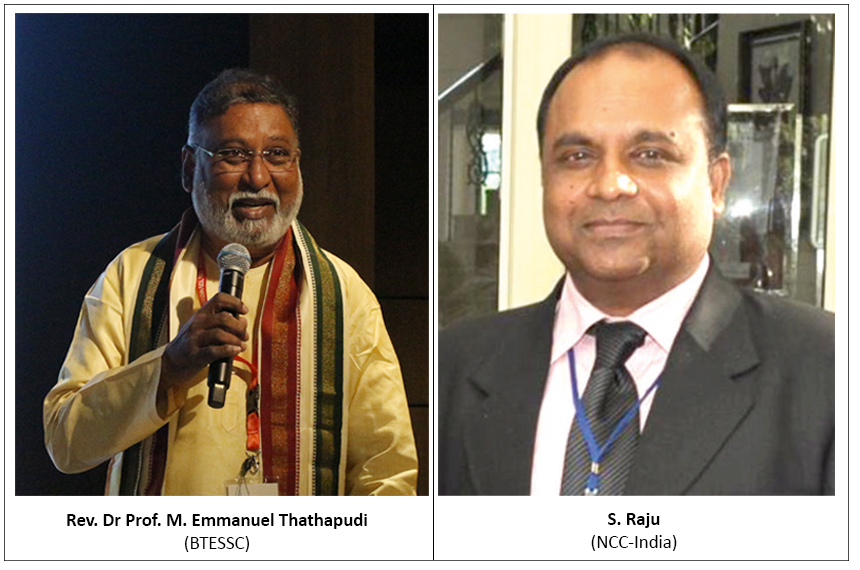Indian churches mourn the loss of two ecumenical leaders, who died of COVID-19
 As the world is reeling under COVID-19 crisis and India became one of the worst-hit nations with the catastrophic second wave of the coronavirus pandemic, two prominent church and ecumenical leaders have lost their lives during the past two days.
As the world is reeling under COVID-19 crisis and India became one of the worst-hit nations with the catastrophic second wave of the coronavirus pandemic, two prominent church and ecumenical leaders have lost their lives during the past two days.
Rev. Dr Prof. M. Emmanuel Thathapudi, Secretary of the Board of Theological Education of the Senate of Serampore Colleges (BTESSC), passed away on 24 April in Bangalore, and S. Raju, a staff member of the National Council of Churches in India (NCCI) passed away on 23 April in Chennai.
Both battled for their lives while being hospitalised after contracting the coronavirus and testing positive.
An ordained minister of the Canadian Baptist Mission (CBM) Church in Andhra Pradesh, Dr Thathapudi was a distinguished Professor of Old Testament. He was principal of the Andhra Christian Theological College in Hyderabad. As a representative of theological educational institutions in India, Dr Thathapudi had been a member of the Working Group of Christian Conference of Asia (CCA) coordinated Congress of Asian Theologians (CATS). He participated in the CATS–IX held in Medan, Indonesia, in 2019.
Mr Raju had been working with the NCCI at its National Office in New Delhi for 22 years, as a liaison staff of the NCCI and its Christian Service Agency for relations with the government. He had demonstrated exemplary leadership in building NCCI’s relationships with governmental agencies as well as civil society and faith-based organisations in India’s capital city, New Delhi.
While expressing heartfelt condolences to the bereaved families and friends, the General Secretary of the CCA Dr Mathews George Chunakara stated that with the passing away of the two ecumenical colleagues, the Asian ecumenical movement lost true friends who had been accompanying CCA for several years, and that their contributions to the church and the ecumenical movement would be cherished and valued by a large number of people within and beyond the churches in India.
“As the world is caught up in the unexpected and turbulent storm of the COVID-19 pandemic, we are constantly reminded of our fragility. We need to beseech divine interventions to save humanity from the brutality of the pandemic; each of us is in need of comforting the other,” the CCA General Secretary added.
With the surge of the giant second wave, the number of people testing positive for COVID-19 in India surpassed 300,000 in a single day for the first time. India has recorded a total of 16.96 million infections and more than 192,000 deaths.










